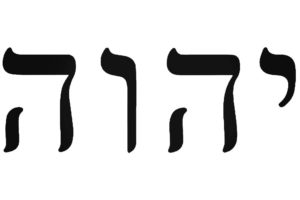- Joshua the Warrior: How God Equips Us for Battle – Exodus 17:8-16
- Men of God Know Their God – Joshua the Worshiper
- Discernment for Leaders – Joshua the Apprentice
How does one appropriately handle the theme of worship? The mystery of knowing God and bowing before Him has a depth that is too challenging for our hearts. Knowing God is not so much a broad topic that challenges the intellect, but it is a deep topic that intimidates our hearts. God! Who can know Him? Yet He invites us personally into the holiest of all.
Joshua became what he did because he learned early on the secret of the sanctuary. He took up the challenge to move beyond seeing God into knowing God. Men, we have no right to lead God’s people until we know the God of the people. May we tread carefully in this section of Joshua’s life, for it will challenge us beyond what we can handle.
Notice, firstly, the danger of God’s presence. In Exodus 24, we find two leaders being prepared. Nadab (and Abihu) and Joshua. One would be a high priest; one would be a general of the people. We read in this passage, “They saw the God of Israel. . . yet He did not stretch out His hand against the nobles of the sons of Israel; and they saw God, and they ate and drank.” They saw God! Yet these two leaders had vastly different outcomes. While Joshua finished well, Nadab and Abihu were consumed upon the first exercise of their office when they offered strange fire. From them we learn that seeing God does not guarantee faithfulness. In fact, so profound is this reality that there is unique potential for hardness, for if a man presumes upon the presence of God there is no depth of sin into which he cannot descend. This is where Nadab and Abihu found themselves: presuming upon the presence of God. Therefore, God’s presence is a dangerous thing. It can destroy a man if his heart loses the gravity of God.
What made the difference for Joshua? While Nadab and Abihu remained with the privileged few, Joshua went up specially with Moses and beheld the descending cloud of divine glory. Joshua went beyond seeing God; Joshua was inspired to know God. Many have seen God and have been destroyed. Consider Judas. Consider Nadab and Abihu. Belshazzar saw the hand of God and died that very night. Their problem was they could not combine their vision of God with their personal knowledge of God. What is the Great White Throne but a scene where many will see God but be cast into darkness since they do not know Him?
Joshua teaches us to see God, yes, but he teaches us to know God. We are blessed with resources that generations before us have never seen. We have hundreds of commentaries, dictionaries, and books on thousands of Biblical topics. We have Bible software, audio teaching, and study guides to aid us in seeing God. Yet Christendom is “wretched and miserable and poor and blind and naked.” Herein lies the problem: we have an abundance of resources with which to envision God but have not ourselves entered the cloud of intimate knowledge of Him. Therefore, our hardness grows with unique power. Men of God in this day will not be men of the seminary. They will not be men of the commentary, dictionary, or study guide. They will be men who have been broken by a vision of God and have pursued the knowledge of God. Yes, Nadab and Abihu saw God, and He was merciful to preserve their lives. But Joshua saw God and heard His voice.
Further than this, he was inspired by the intimacy which Moses experienced with God. In chapter 33, we read, “Thus the Lord used to speak with Moses face to face, just as a man speaks to a friend.” Joshua witnessed that. What was his response? “When Moses returned to the camp, his servant Joshua, the son of Nun, a young man, would not depart from the tent.” Though Joshua did not verbalize his thoughts, his actions spoke for him; it is as if he said, “Oh, if only I could attain to a mere measure Moses’ worship! God speaks to Him face to face; he is the friend of God. I cannot leave. I must learn of this God.”
Was a young man capable of such spiritual thoughts? The question is not one of capability but of necessity. It was necessary for him to have such thoughts and pantings after God in his youth; otherwise, hardness would easily set in as he would forget the gravity of God. Real men of God were broken young men at one point; think of Samuel, David, Jeremiah, Peter, Timothy. Even if not in age, early in their dealings with God do men of God form their lifelong convictions and burdens in His presence.
If there is hope for this generation, it will be in fresh minds and soft hearts. There are far too many ‘Nadab’s and ‘Abihu’s that have seen God’s glory with their peers but have never been drawn to a personal knowledge of God. These men offer “strange fire.” These men destroy testimony. Oh, they may be prominent for now, but their day will come. Our hope lies in the God Who raises up ‘Joshua’s, men of God who aspire to the presence of God having seen the glory of God and heard the words of God.
Men, do not “depart from the tent.” Learn from men who speak with God as with a friend yet with all gravity. Aspire to that. Enter into “the cloud.” Hear the voice of God. Bow before His glory. Seek to know it more. Worship God!




